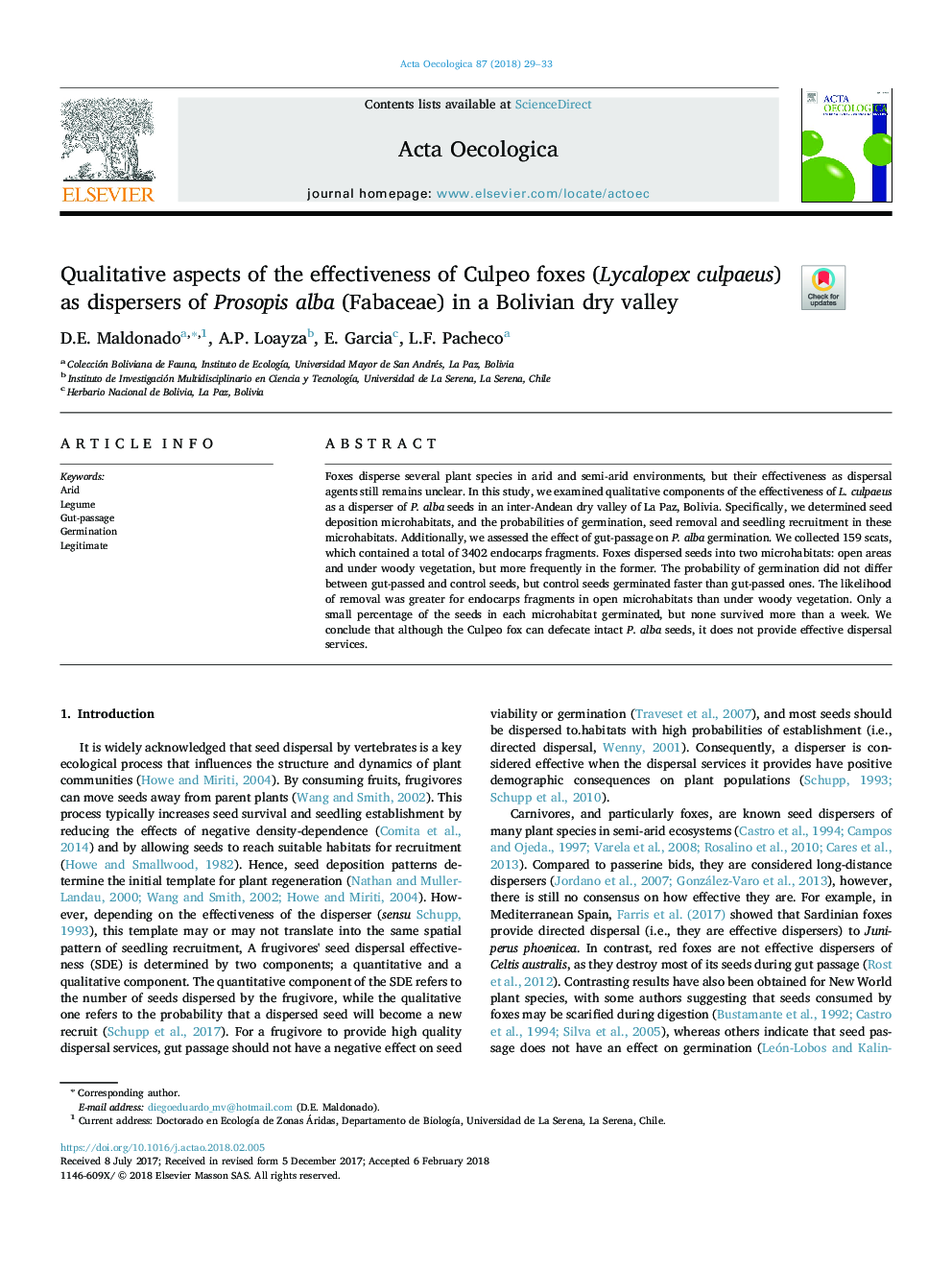| Article ID | Journal | Published Year | Pages | File Type |
|---|---|---|---|---|
| 8846526 | Acta Oecologica | 2018 | 5 Pages |
Abstract
Foxes disperse several plant species in arid and semi-arid environments, but their effectiveness as dispersal agents still remains unclear. In this study, we examined qualitative components of the effectiveness of L. culpaeus as a disperser of P. alba seeds in an inter-Andean dry valley of La Paz, Bolivia. Specifically, we determined seed deposition microhabitats, and the probabilities of germination, seed removal and seedling recruitment in these microhabitats. Additionally, we assessed the effect of gut-passage on P. alba germination. We collected 159 scats, which contained a total of 3402 endocarps fragments. Foxes dispersed seeds into two microhabitats: open areas and under woody vegetation, but more frequently in the former. The probability of germination did not differ between gut-passed and control seeds, but control seeds germinated faster than gut-passed ones. The likelihood of removal was greater for endocarps fragments in open microhabitats than under woody vegetation. Only a small percentage of the seeds in each microhabitat germinated, but none survived more than a week. We conclude that although the Culpeo fox can defecate intact P. alba seeds, it does not provide effective dispersal services.
Keywords
Related Topics
Life Sciences
Agricultural and Biological Sciences
Ecology, Evolution, Behavior and Systematics
Authors
D.E. Maldonado, A.P. Loayza, E. Garcia, L.F. Pacheco,
